#SHOWUS & THE PROJECT TO IMPROVE CHILDREN’S SELF-ESTEEM
CROS, Unilever Rus (brand - Dove) February – July 2020
The project won three first prizes at Effie Awards and Silver Mercury, bronze prize at Tagline Awards, was shortlisted by the prestigious professional awards European Excellence Awards, SABRE Awards EMEA, Davos Communications Awards, the Silver Archer and RuPoR.
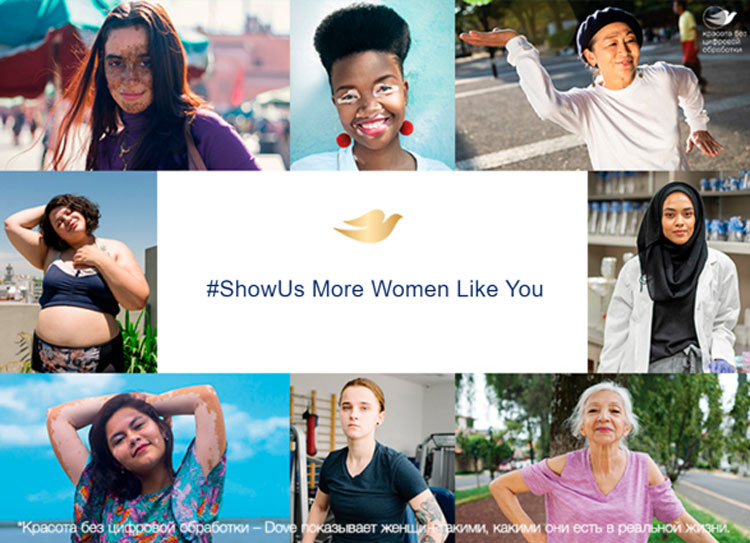
Between February and July 2020, Dove together with CROS held several social communication campaigns, each broadcasting the brand’s values and corresponding with the current global agenda: the projects to promote beauty diversity, provide support for healthcare workers during the pandemic, and a project to improve children’s self-esteem, that became even more topical in the new environment.
-
The project #ShowUs (#ПокажитеНас) was designed to help women and young ladies to become aware of the related to the appearance stereotypes in the media and ads, and to understand that beauty can be different.
-
During the pandemic, Dove switched the focus of the project to demonstrate the beauty of healthcare workers in their courage fighting against Covid. A video clip “Courage Is Beautiful” to support healthcare staff in their hard work was produced. It shows portraits of Russian hospital workers without any comments. The shots were made right after the working shifts when doctors and other medical workers still had marks from protective glasses and masks on their faces.
-
The project to improve children’s self-esteem allowed to raise several issues related to the younger generation. Lack of self-confidence and low self-esteem can impact concentration and performance of teenagers, as well as their development. During the pandemic, they were deprived of their common lifestyles, could feel stress and anxiety at home which, in turn, could worsen their inner unresolved problems. That is why, at that time, it was particularly important to have an open and frank dialogue with children at home, making strong efforts to increase their self-esteem by all possible means.
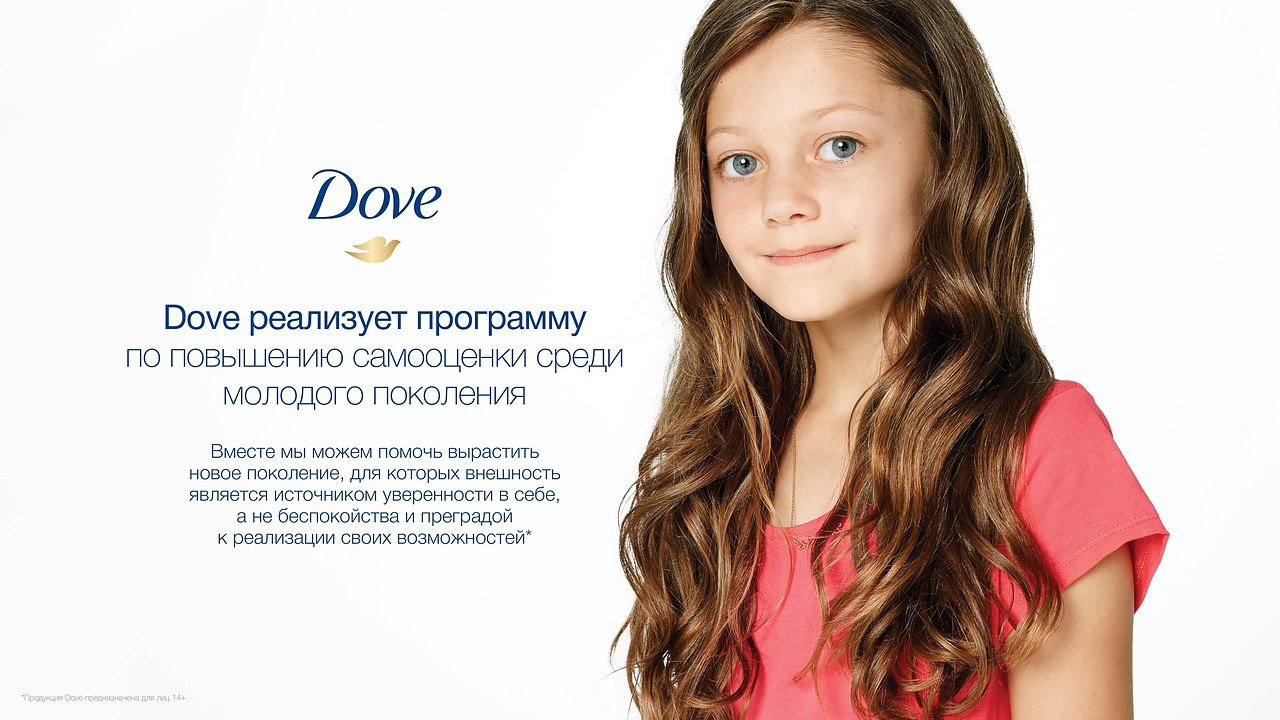
Background
No to beauty stereotypes!
A research by Dove showed that we have become more demanding to the way women are portrayed by the modern media. Today, women want to see REAL-LIFE images in glossy magazines, ads, social media, movies and shows. This stimulated Dove to launch the project #ShowUs (#ПокажитеНас) together with Getty Images and Girlgaze: a stock images database of women and created by women to challenge beauty stereotypes and to show real women the way they are in actual life and not the way others want to see them.
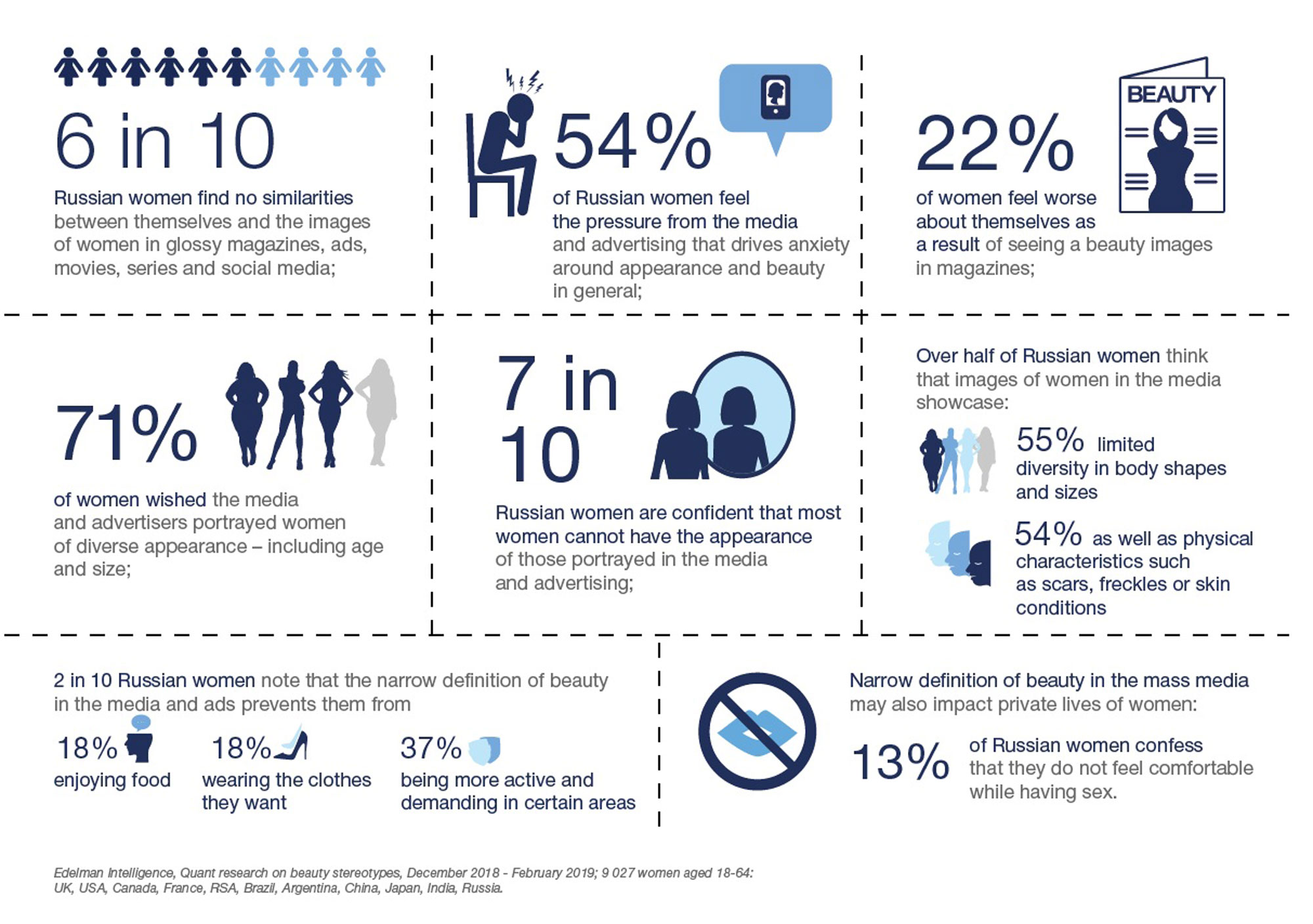
Historically, it was the mass media and the advertising industry that made the largest contribution to building stereotypes of how women should look like. With that in mind, Dove partnered with CROS to change the situation and make pictures of real women, made within the #ShowUs (#ПокажитеНас) project, be used in the media and ads, and prompt the mass media and opinion leaders to talk more and louder about the diversity of women’s images in order to promote this diversity in the public perception of beauty and lifestyles.
Goals and objectives
To increase public awareness about the campaign to improve representation of real women in the media and ads, and to challenge stereotypes, rooted in the media landscape, to support young girls in getting healthy self-esteem without excess influence of external factors.
- Stimulate the discussion in the public sphere of different beauty standards.
- Raise public awareness about the diversity of beauty types.
- Promote the petition about special marking of retouched photos in the digital and ad materials.
- Media relations and work with opinion leaders to promote the campaign’s key messages, recommendations for teenage girls on how to increase their self-esteem.
- Attract public attention to the work of healthcare workers during the pandemic.
Communication strategy
Rethink stereotypes about female beauty and support young women in their self-appreciation by broadcasting the key ideas of the campaign:
- Many women know the ideal images of models in ads and compare themselves with those images. Such images dominate in the mass media and ads, causing negative impact on women’s self-esteem.
- Dove urges other brands and companies to be more responsible and transparent, to reduce the unnecessary psychological pressure on women and to have positive influence on the audience.
- Support for girls and women in appreciating themselves as individuals and their appearance even when it is different from others. Help young people be different and look the way they think is right and not the way others want to see them. Dove wants to realize the full potential of girls and women and for already 10 years works with students, parents, mentors and teachers within its educational program to raise their self-esteem in the global Dove Self-Esteem Project.
- The program has a big goal: by the end of 2020, to tell 20 mln teenage girls about the importance of having love for oneself, own appearance given by nature, and how to care about oneself.
- All over the world, healthcare workers are at the forefront of fighting with Covid, and it is hard to overestimate their courage. Dove wants to support medical staff and to thank them for their work, for everything they do for all the people.
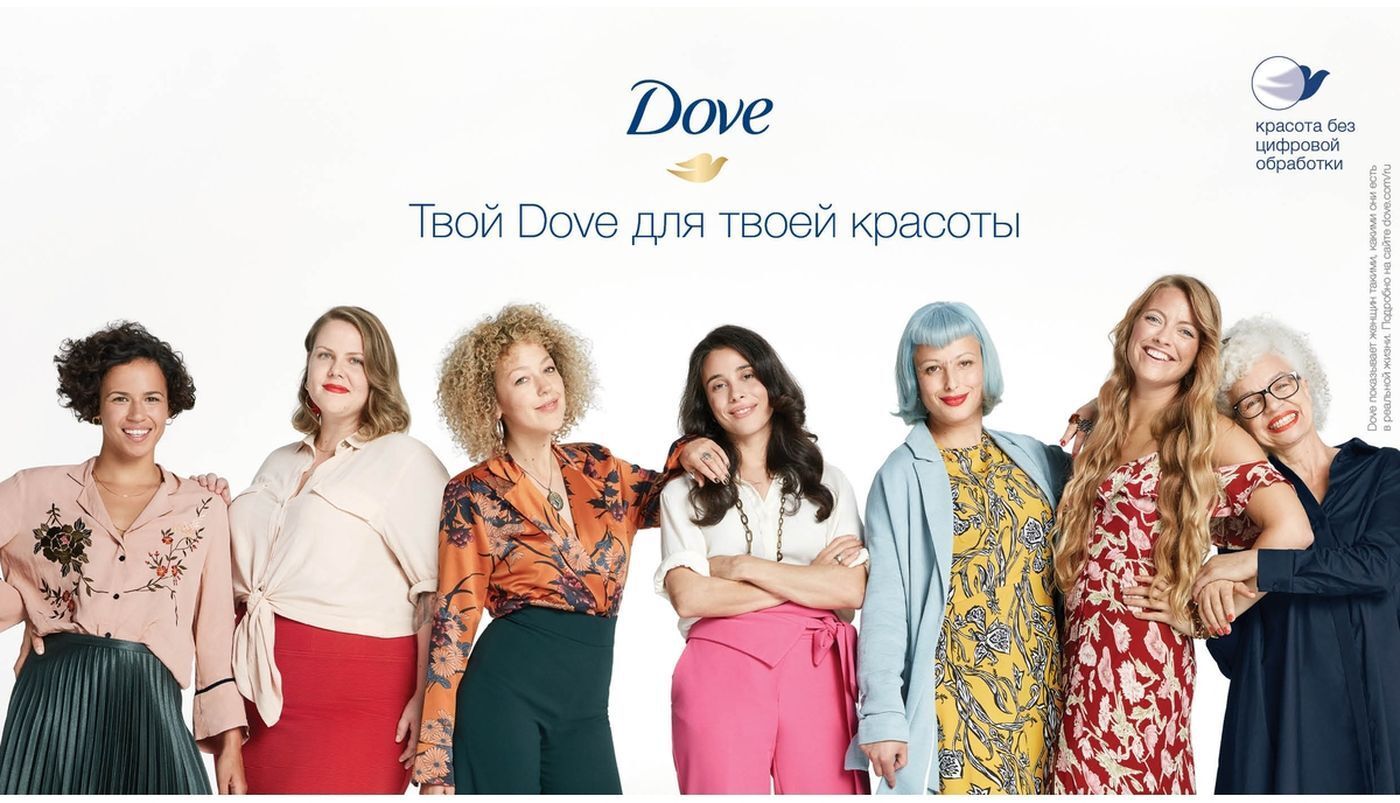
Tactics and creative solutions
- Establishing the paradigm that the media do not represent the whole diversity of beauty and do not portray all types of women.
- Negotiations with glossy magazines about introducing special marking of retouched photos in the digital and ad materials.
- Discussion with opinion leaders of difficulties and stereotypes that they face when interacting with the mass media (and facing retouching of images due to ‘large nose’, ‘different eyes’, ‘sticking out ears’ and other features), and engaging them to support the campaign for naturalness and diversity.
- Creation of the video clip “Courage Is Beautiful” dedicated to the healthcare workers’ contribution to fighting the pandemic.
- Communications with psychologists and writing comments for the media on the topic of improving self-esteem among teenage girls.
- Promoting time spent together by parents and children during the self-isolation period, launching discussions in the media of the major intergenerational problems.
What has been done
-
Articles in the media with the participation of experts and celebrities
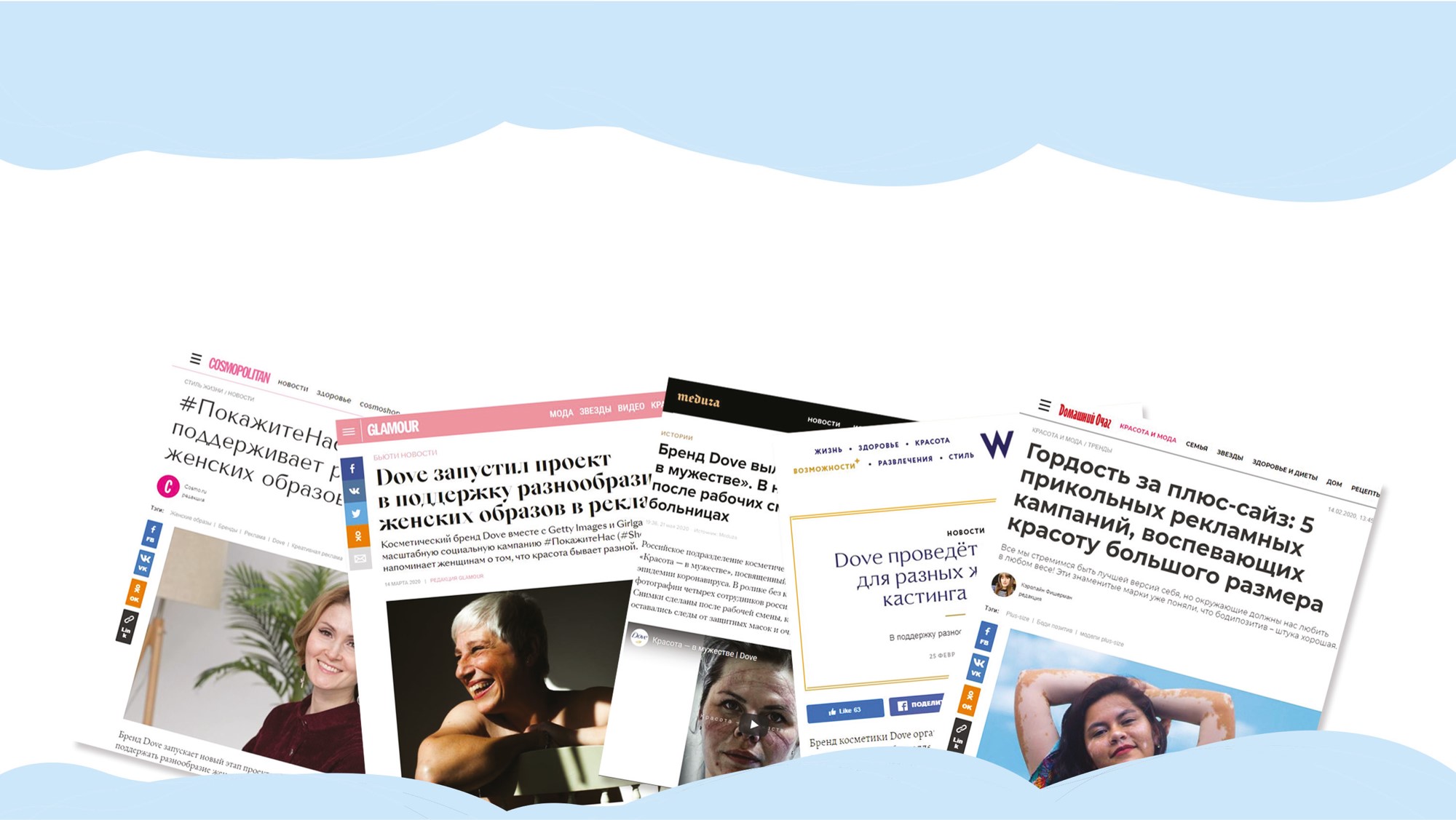
-
Various social media activations
- discussing with teenagers topics like love for oneself, development of one’s personality, discussion of popular idols and what girls like in them.
- discussing with women in accounts of opinion leaders cases when their appearance was criticized by somebody, when their photos were retouched and how complexes developed in them.
-
3200 photo sessions in large cities of Russia: Moscow, Saint-Petersburg and Krasnodar – over 160 000 photos.
-
Best photo of every participant was included in the #ShowUs (#ПокажитеНас) collection.
Images picked by the participants themselves were broadcast on digital billboards in the cities’ central locations for one month. Mass media and advertisers received free access to all photographs.
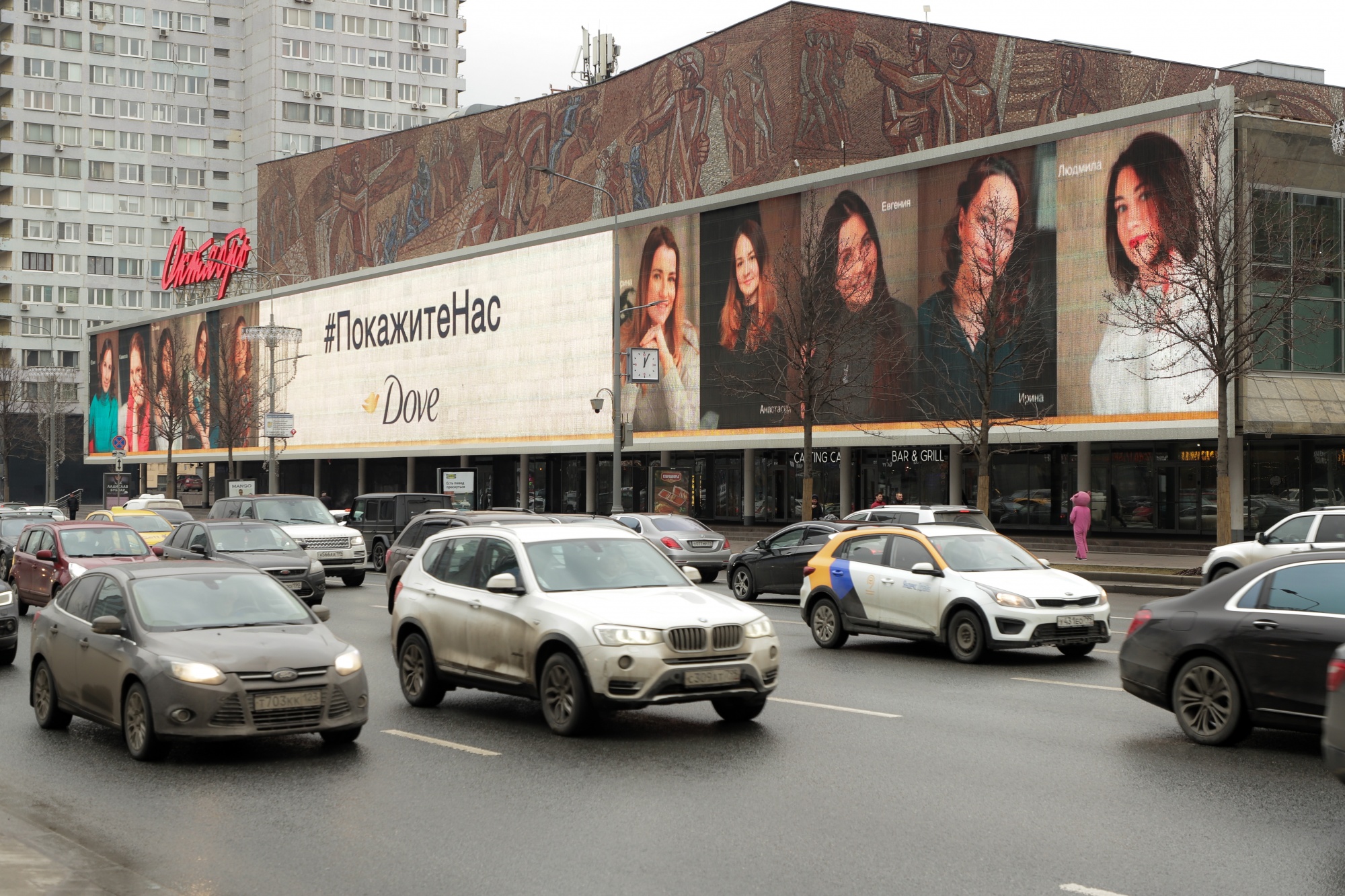
-
Collection of signatures in support of the petition to mark retouched photos in public materials. 18 525 signatures collected. The initiative was supported by all Unilever brands and Glamour Russia magazine.

-
Video clip “Courage Is Beautiful”, dedicated to the work of healthcare staff during the pandemic. It shows portraits of Russian hospital workers without any comments. The shots were made after the working shifts when doctors and other medical workers still had marks from protective glasses and masks on their faces.
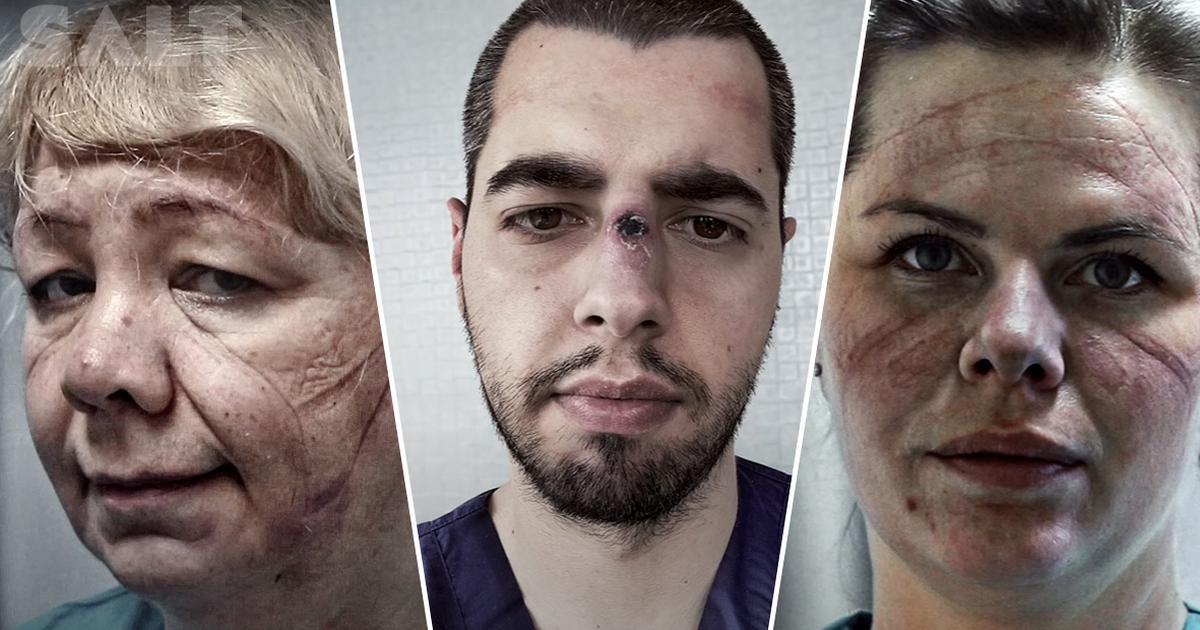
-
Within the project to improve children’s self-esteem, in the current conditions, it was important to stress the value of harmonious relations in families, as well as with teachers and tutors. In order to make the time at home and in the family circle more productive, Dove and CROS prepared and distributed in the traditional and social media manuals for parents and teachers, along with a series of materials on building good relations with younger generations.
- Articles with exercises to improve self-esteem, designed in cooperation with Children’s Health Research Institute of the Russian Healthcare Ministry; recommendations on how to accept one’s body and appearance in general, on the attitude towards food and physical activity, healthy perception of the images in the mass media and ads, on dealing with bulling by peers and bantering at home, as well as other topics were published by the leading media and public accounts on VKontakte and Telegram.
- Many families around the world already follow Dove’s recommendations on improving self-esteem and share their experience from the process and results on the social media. For those, willing to share their experience and to discuss it with others the brand suggests using hashtag #DoveSelfEsteemAtHome (#DoveСамооценкаДома).
Results
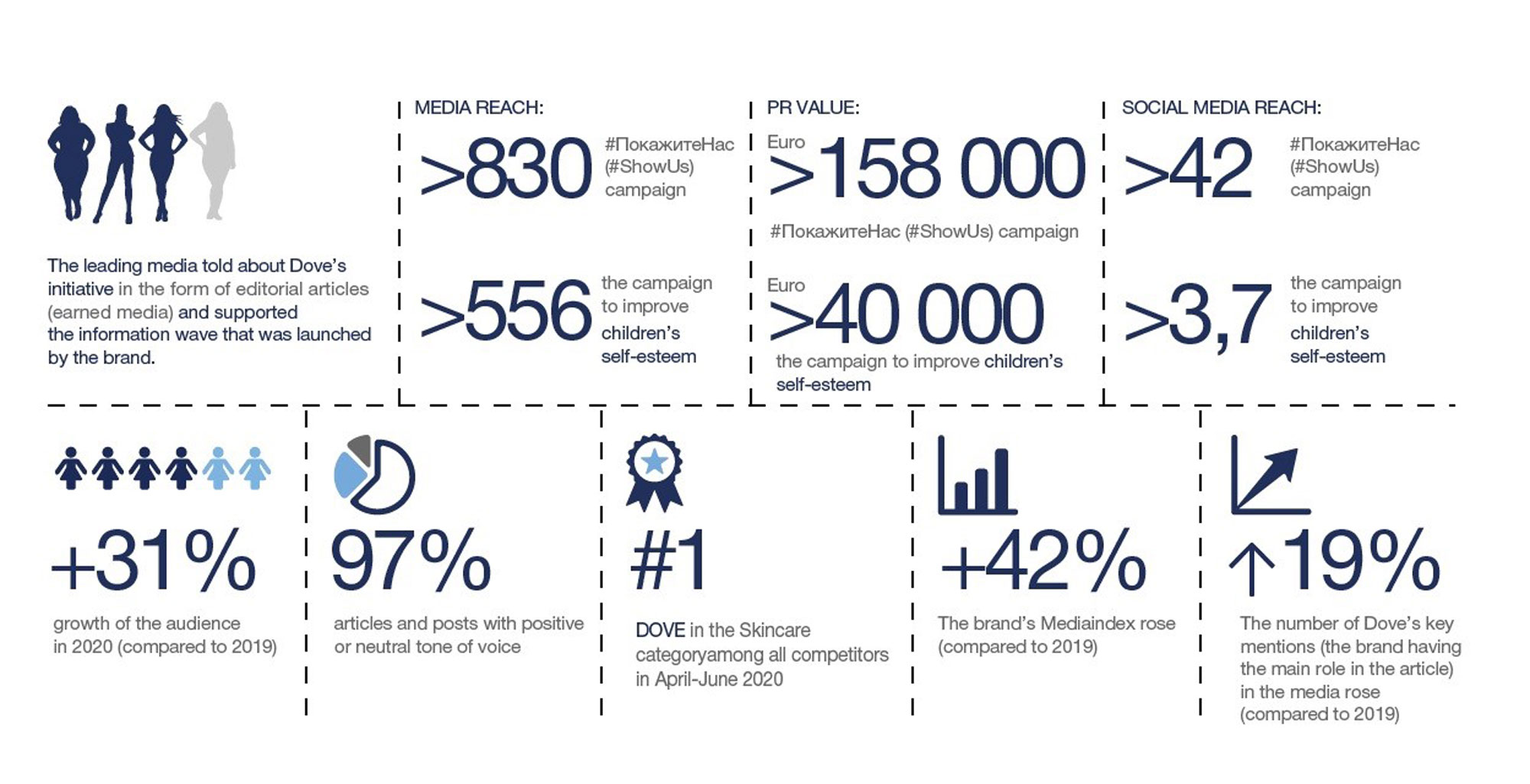
With the #ShowUs (#ПокажитеНас) project and the campaign to improve children’s self-esteem Dove and CROS wanted to change the stereotypical perception of beauty and to show real women as they are in real life, and not as somebody else wants to see them. By its own example, Dove appealed to other brands to be responsible and more transparent, because it can reduce unnecessary pressure and have positive impact on lives of women.
Thanks to offline and then online events for women and public discussions of diversity and value of different types of beauty, it helped thousands of young ladies understand what is real and what is not.
Following one another and overlapping, Dove’s projects helped many girls and women to realize their uniqueness, to increase brand loyalty, to develop a social trend to increase trust in big business:
…“Somebody thinks of me, takes care of me, and I am not alone with my problem!”